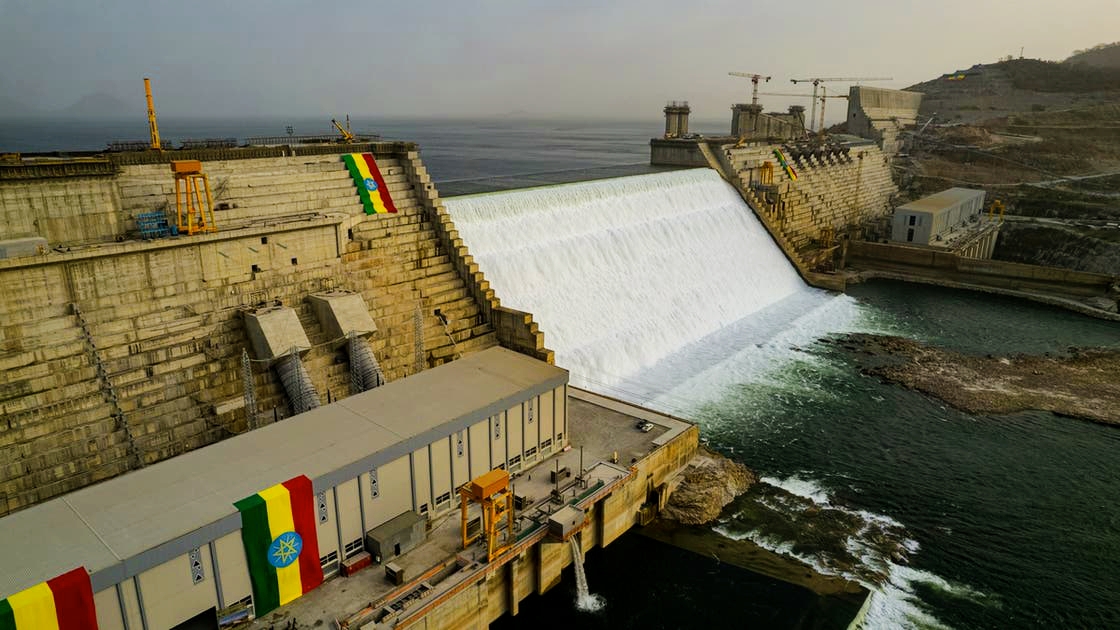Amid widespread suffering in Sudan from severe flooding due to the rising Nile River levels, Egypt pointed fingers at Ethiopia, holding it responsible for the disaster due to the "lack of coordination regarding the operation of the Renaissance Dam."
Egyptian Foreign Minister Badr Abdel Aati stated in remarks made today, Wednesday, on the sidelines of the Munich Summit held in Al-Ula, Saudi Arabia, that "the lack of coordination regarding the Ethiopian Renaissance Dam has caused devastating floods that hit Sudan."
* Violation of International Law
Abdel Aati added that "Ethiopia is blatantly violating international law," pointing out that negotiations with it regarding the Renaissance Dam have reached a dead end, despite years of trilateral dialogue with Sudan.
The Egyptian minister warned that the greatest danger lies not only in the floods but also in prolonged drought conditions, noting that "if the region experiences a drought lasting five years _as happens once every 50 years_ the consequences will be catastrophic for Egypt and Sudan."
Abdel Aati confirmed that "the Nile River is not the exclusive property of any country, but an international river subject to international laws, and any unilateral action affects the security and stability of the peoples of the region."
* Unprecedented Floods
On the ground, cameras captured the extent of the disaster south of the Sudanese capital Khartoum, where the waters of the White Nile inundated entire villages and neighborhoods, after its levels rose unprecedentedly compared to previous years.
The Al-Shuqaylab neighborhood has turned into what resembles a floating island, as the waters flooded the streets and squares, and movement is now only possible via small boats, in a scene that reflects the severity of the crisis.
Experts link this unusual rise in the river's level to the "full capacity of the Renaissance Dam," which caused sudden flows of Nile water without coordination or prior notice to the affected countries.
* Controversial Dam
It is worth mentioning that the Ethiopian Renaissance Dam, which Addis Ababa began constructing years ago, is a massive project aimed at generating electricity, but it has sparked intense controversy from the outset between Egypt, Sudan, and Ethiopia due to the absence of a binding legal agreement regarding the operational mechanisms and water distribution.
Despite multiple rounds of negotiations, the three countries have failed to reach an agreement, which has heightened regional tensions and raised questions about the future of water security in the region.

